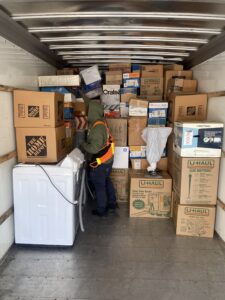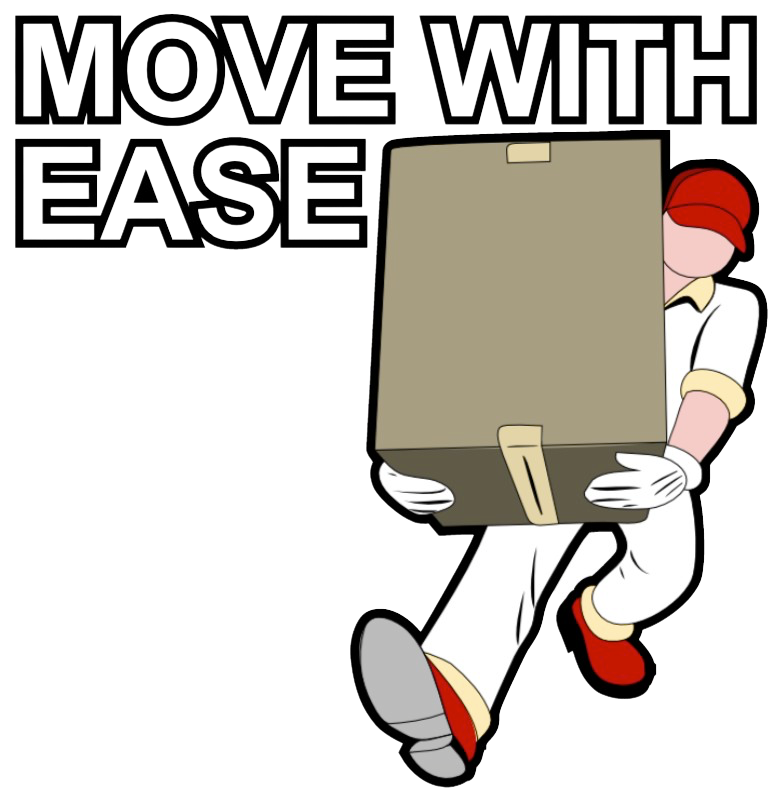Moving to a new home is an exciting journey, but understanding the costs associated with the moving process can be daunting. Whether you’re hiring professional movers, opting for a DIY approach, or considering additional services like packing or storage, knowing what to expect helps you make an informed decision. In this guide, we’ll explore the major factors influencing moving costs and provide tips to minimize expenses for your next move.
What Influences the Total Cost of Your Move?
The total cost of a move depends on various factors, including the size of your move, the distance of the move, and the type of services you need. By breaking these components down, you can estimate costs more accurately and avoid unexpected costs.
1. Size of Your Move
The size of your home and the amount of stuff you’re moving play a significant role in determining costs. Larger homes and heavier household items require more movers, larger trucks, and extra time, all of which increase the overall cost.
- One-Bedroom Apartment: A smaller move often has lower costs due to fewer belongings and a smaller truck size.
- Larger Homes: Moves involving five-bedroom houses or long-distance relocations can have higher costs due to the size of the truck and labor required.
2. Distance of the Move
Long-distance moves, such as cross-country moves or interstate moves, are generally more expensive due to transportation costs, fuel costs, and additional fees for crossing state lines.
- Local Movers: A move within the same city or region typically incurs a lower cost.
- Long-Distance Movers: Moving to a new location far away requires additional planning, mileage fees, and possibly overnight storage.
3. Timing of Your Move
The time of year has a significant impact on moving costs.
- Summer Months (Peak Season): High demand during summer months increases costs for moving companies.
- Winter Months: Lower rates are often available during the off-peak season.
- Time of Day: Scheduling moves during non-peak hours can save money.
Types of Moving Services and Their Costs
Choosing the right type of move depends on your budget, timeline, and specific needs. Below are the most common types of moving services and their associated price ranges.
1. DIY Moves
A DIY move is the best option for those looking for a lower cost. This approach involves renting a truck, managing the packing, and handling heavy lifting yourself.
- Truck Rental: Costs vary based on the size of the truck and the distance of your move.
- Packing Supplies: Budget for bubble wrap, packing supplies, and tape.
- Storage Container: If needed, portable containers add extra convenience but come with an extra cost.
2. Professional Moving Companies
Hiring professional movers is ideal for those seeking convenience and peace of mind. Professional moving companies handle the heavy lifting, transportation, and even packing services.
- Full-Service Movers: These movers provide end-to-end services, including packing, loading, and unloading. Expect higher costs but significant time savings.
- Local Movers: For short-distance moves, local movers charge an hourly rate, with the final price depending on the size of your move.
3. Additional Services
Some moves require specialized services, which can increase the overall cost.
- Packing Services: Professional packing ensures fragile items like pool tables and hot tubs are securely packed but comes with an additional charge.
- Storage Unit: Renting a storage unit is a good idea for items that don’t fit in your new place immediately.
- Full Value Protection: This insurance option ensures valuable items are covered but adds an extra fee.
How to Estimate Moving Costs

Using a Moving Cost Calculator
A moving cost calculator is a useful tool to get an accurate estimate for your move. Input details like the size of your home, distance of your move, and additional services to receive a detailed cost estimate.
Factors to Include in Your Moving Budget:
- Labor Costs: Based on the number of movers and how much time they’ll need.
- Transportation Costs: Includes fuel costs, tolls, and the size of the truck.
- Packing Supplies: Estimate the cost of boxes, bubble wrap, and other materials.
- Extra Fees: Account for unexpected costs like additional charges for stairs or narrow access points.
Average Costs of a Move
- Local Move: The average cost ranges from $500 to $2,000, depending on the size of your home.
- Long-Distance Move: Cross-country moves typically cost $2,000 to $8,000 or more.
Tips to Reduce Moving Costs
1. Plan Your Move During the Off-Peak Season
Scheduling your move during winter months or non-peak times can lower rates and give you access to the best movers.
2. Declutter Your Current Home
Reducing the amount of stuff you need to move can significantly cut costs. Donate unwanted items or sell them at a yard sale.
3. Shop Around for Free Quotes
Request multiple moving quotes from professional movers to compare price ranges and find the best value.
4. Consider a Hybrid Approach
Combine a DIY approach with professional services, such as renting a truck but hiring movers for heavy lifting or specialized packing.
What to Expect for Specific Types of Moves
1. Local Moves
Local moves are typically charged by the hour, with the average cost ranging from $80 to $200 per hour, depending on the number of movers and the size of your home.
2. Long-Distance Moves
For interstate moves or cross-country relocations, costs depend on the weight of your belongings and the distance of your move. Hiring long-distance movers ensures your items are safely transported but comes at a higher cost.
3. Moves Requiring Specialized Services
If you’re moving valuable items like hot tubs or pool tables, expect extra fees for their careful handling. Additionally, larger homes may require additional services, increasing the final cost.
Additional Costs to Consider
1. Storage Needs
If your new home isn’t ready, renting a storage container or unit can add to the cost of your move.
2. Packing Supplies
Bubble wrap, packing tape, and new boxes can add up quickly, especially for larger homes. Opt for reusable supplies when possible to save money.
3. Unexpected Costs
Be prepared for additional fees for challenges like narrow hallways, multiple flights of stairs, or long carry distances from the moving truck.
Making an Informed Decision
Choosing the right moving services requires weighing the cost of your move against your specific needs. Whether you opt for full-service movers, a DIY move, or a hybrid approach, planning ahead is the best way to stay within your moving budget.
Questions to Ask Your Movers:
- Does the moving quote include additional charges for labor or materials?
- Is full value protection included in the cost estimate?
- What are the price ranges for additional services like packing or storage?
Final Thoughts: Budgeting for Your Move
Moving costs can vary widely based on the type of move, distance, and services required. By understanding the factors that influence the final price and using tools like a moving cost calculator, you can plan your upcoming move with confidence. Whether you’re hiring professional movers for a long-distance move or tackling a local relocation, making informed decisions will ensure a smooth transition to your new place without breaking the bank.
